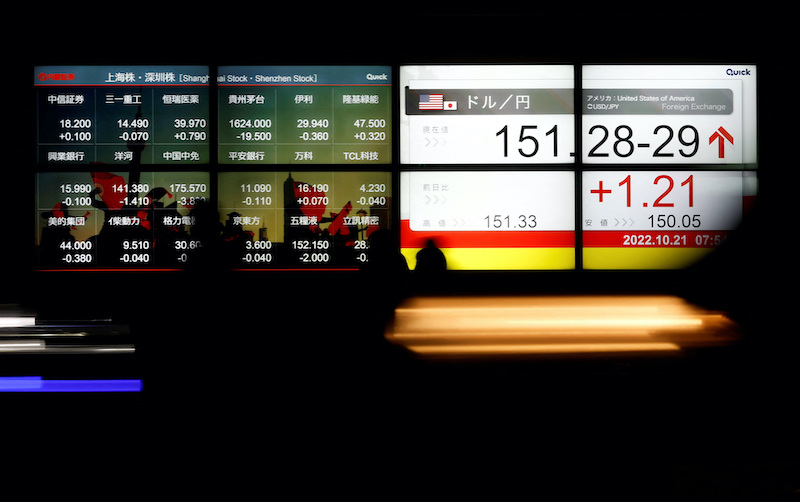Fund managers are launching emerging market or Asia products with no exposure to China, as investors grow wary of rising policy and geopolitical risks in the world’s second largest economy.
Matthews Asia, a US-based asset manager that specialises in Asian investments, and manages more than $14 billion, is among the latest to have launched a new product with an Asia ex-China strategy, two sources familiar with the matter told Reuters.
Matthews Asia did not respond to Reuters queries.
Chinese equities make up 31% of the MSCI Emerging Market index, a popular stock index that many funds track and benchmark their performances against. Chinese equities have, however, floundered over the past two years due to a government crackdown on its technology sector, a real estate liquidity crisis, and rising tensions with the US.
Also on AF: iPhone Output At Top China Plant Could Fall 30% Due to Covid
Broad emerging market funds have seen their returns eroded, and investors have been clamouring to cut short their exposure to the world’s biggest emerging market.
Goldman Sachs, in a report issued on Friday, estimated that $100 billion to $200 billion of foreign holdings could be at risk if global funds cut their allocation to Chinese equities meaningfully, while global active funds have sold around $30 billion in Chinese equities over the past year.
“Given China takes a heavy weight in the indices and to mitigate risks from the Chinese market”, some funds are starting to introduce products targeting these markets but excluding exposure to China, Haitong International Securities Group Ltd, a state-backed securities firm based in Hong Kong, said in a memo issued last week and reviewed by Reuters.
Two investment managers with long-only strategies based in the United States have started issuance of such products, it said.
Investors’ Sino-US Concerns
Haitong noted that foreign investors were concerned with heightened Sino-US geopolitical tensions and their impact on Taiwan. Furthermore, sanctions imposed by the US government on China, particularly its semiconductor and biomedical industries, has also unsettled global investor sentiment.
Nine new emerging market ex-China equity mutual funds and exchange-traded funds (ETFs) were created this year, according to fund research firm Morningstar. That’s equal to the number of total such launches over the past two years.
The latest ones include funds issued by Goldman Sachs Asset Management, WisdomTree Investments and RBC Global Asset Management. Abrdn and Invesco have also refashioned existing products into ex-China funds.
Rob Brewis, a portfolio manager at UK-based asset manager Aubrey Capital Management Ltd, said the firm had seen growing calls over the past year from American investors to remove China from its emerging market portfolio.
“We are starting to see requests from UK investors this month,” he said.
The Indian market would take a significant portion, if Aubrey removes China from its emerging market strategy, Brewis said, adding that the rest will be spread around other countries including Vietnam, Brazil and Mexico.
Rising outflows from China
Andrew McCaffery, Fidelity International‘s global chief investment officer, said they have received increased requests from clients for emerging markets excluding China strategies, although the purpose was to “break China out as an allocation separately within global portfolios”.
Flows and portfolio data bear testimony to investor disenchantment with Chinese markets.
October is set to be the third straight month of outflows from China-only ETFs. Meanwhile, Asia equity ETFs have received inflows in most months this year, according to Refinitiv Lipper data.
Fund filings from 280 active emerging market strategies show their weight for Chinese and Hong Kong equities peaked at the end of October 2020, right before China started sweeping crackdowns on new economy companies, including fintech giant Ant Group.
After a brief blip higher in mid-2022, allocations are towards the lower end of the three-year range, said Steven Holden, director and founder of Copley Fund Research.
“With the recent price movements, expect those weights to be much lower,” he said.
Fidelity’s McCaffery said significant further underweighting of China is unlikely, given its global importance and as the country looks to stabilise externally and internally after President Xi Jinping secured a third term this month.
“The challenge is that they [global investors] are not going to be quick to add back in,” he said.
- Reuters, with additional editing from Vishakha Saxena
Also read:
China Stock Market Guide: Everything You Need To Know
China Seen Moving to Curb Risks in $1.4tn Money Market Funds
China’s Private Sector Shut Out of Xi’s Party Congress – FT
Xi Jinping Doubles Down on China’s Zero Covid Policy – NYT
























